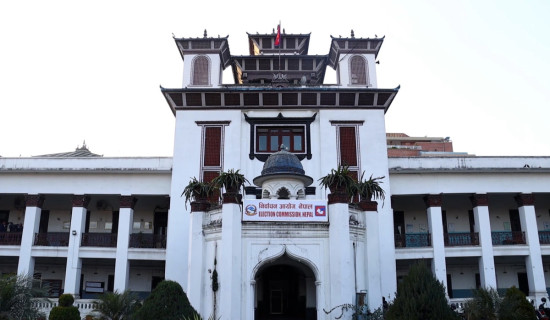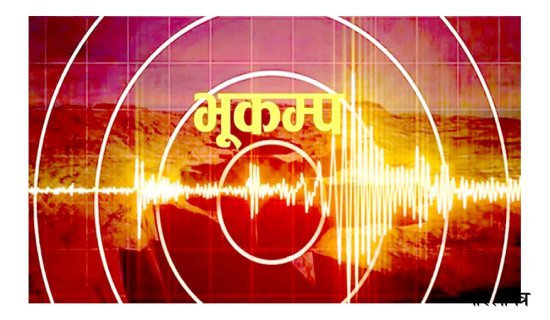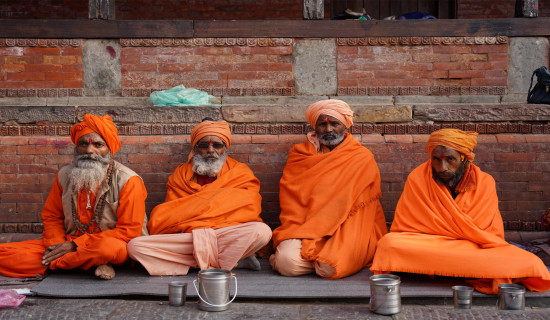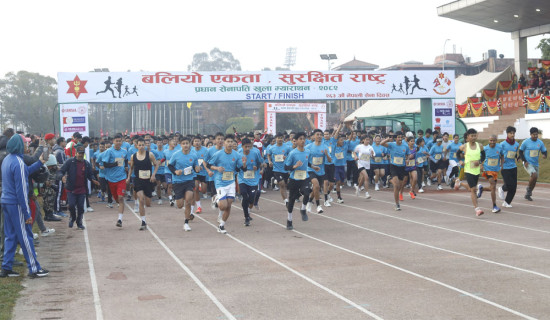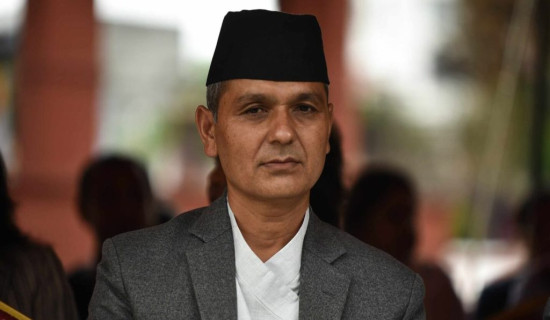- Sunday, 8 February 2026
Political, administrative rift impedes development initiatives in Dharan
By Nisha Rai,Dharan, May 23: Politics and administration are said to complement each other, with both aiming to enhance national interests and ensure citizens’ well-being. Therefore, mutual coordination and cooperation are essential.
In Dharan, various events highlight that the relationship between politics and administration is hostile. For instance, a chief administrative officer has not been present in Dharan Sub-Metropolitan City for a long time.
Pragya Devi Niraula, administrative officer of the Social Development Division of Dharan, has also been on leave for some time now.
Harkaraj Rai (Harka Sampang), Mayor of Dharan Sub-Metropolitan City, has frequently written indiscriminately about employees and various individuals he dislikes on his official Facebook page (Harka Sampang a Revolution).
This has caused significant dissatisfaction among many employees, but they have not been able to express their concerns openly.
According to Dr. Rajendra Sharma, a political analyst, some arrangements have been made to foster a harmonious and coordinated relationship between politicians and the administration.
However, in practice, both have struggled to clearly define their roles and achieve their objectives.
In a democracy, the direction of the country’s future is shaped by politics. Politicians not only formulate policies on how to shape the administrative mechanism but also wield influence over the appointment, transfer, and promotion of employees, thereby impacting the administration, he said.
“Where politics adheres to a structured system, administration also operates within that system,” said Dr. Sharma, adding, “Our country is currently in a transitional phase. The inability to establish a system by institutionalizing our political achievements is a weakness of the political leadership.”
Despite granting significant legislative powers to local governments, much of the work in Dharan is executed based on specific directives rather than established laws, he added.
Dr. Sharma suggested that the lack of a proper system had led to increased disarray in the administrative sector of Dharan.
Tilak Rai, outgoing Mayor of Dharan Sub-Metropolitan City, highlighted that the lack of coordination between the people’s representatives and the administration in Dharan was impeding development efforts.
“The administrative employees used to be enthusiastic about working in Dharan. However, it’s disheartening to hear that Dharan is now operating without a head of administration. This situation is impeding the development of Dharan,” he expressed his concern.
The success and failure of the local level depends on the harmonious relationship and balanced roles of politicians and administrators.
However, Rai pointed out that it was natural for politicians and administrators with differing political beliefs to experience conflicts and disagreements.
He suggests, “The best solution is to carry out work based on mutual understanding, public responsibility, and adherence to legal and administrative principles.”
A politician needs the support of the administration, while the administration requires political backing and a strategic vision, he said, adding, “Dharan will develop only if both sides can improve their attitudes and behaviour to ensure good governance while respecting their own boundaries, values, beliefs, and culture.”
The fields of politics and administration were divided after the publication of the article “The Study of Administration” by Woodrow Wilson in 1887.
It was at this point that politics and administration began to develop as two separate disciplines.
Scholars like F. J. Goodnow and L. D. White have concurred with Woodrow Wilson’s views. They believe that politics and administration should not compete with each other but rather complement one another.
In a democracy with a party-based government, the administration should support whichever party is in power. Public administration should be fair, neutral, committed, efficient, and honest.
The concept posits that the duty of the administration is to work with professionalism, efficiency, and loyalty to the post and service, without bias towards any political party.
Advocate Deepak Kumar Budhathoki, an expert in administrative law, asserted that it was unproductive to strictly separate politics and administration, as politicians and administrators are inherently interconnected.
He argued that both policymakers and implementers should be equally responsible.
Budhathoki suggested that good governance could only be maintained if their interaction and mutual complementarity in the governance process were smooth, whether directly or indirectly.
In 2074 B.S., local elections were held in three phases, resulting in the arrival of 753 elected representatives and administrators at the local level.
He emphasized the necessity for politicians and administration to depend on each other and coordinate in utilizing state authority within the domains outlined in Schedules 8 and 9 of the Constitution.
Budhathoki stated that due to certain local levels neglecting their responsibility to maintain a stable and balanced relationship between the local level and the administration, an atmosphere of bitterness had ensued.
“The people-oriented governance system is facing crisis in Dharan and other local levels of Nepal due to the lack of awareness that effective performance aligned with the people’s aspiration requires cooperation, coordination, and co-existence at the local level,” he added.
He believed that if the administration furnished essential information and offered genuine, fact-based opinions to address policy issues, and if the political sector accurately represented the will of the people and formulated policy decisions in accordance with political values, recognition, and sensibility, then the cooperative relationship between politics and administration would flourish.
He suggested, “To eliminate ambiguity and interference between the administration and the political sphere, the law has clearly defined the roles and responsibilities of both. If both sides adhere to these guidelines, many problems can be avoided."



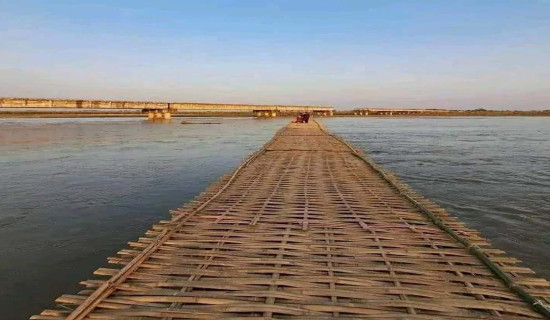
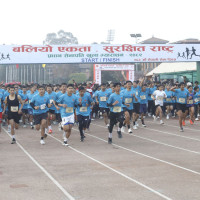
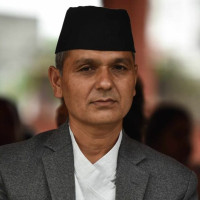


-square-thumb.jpg)
